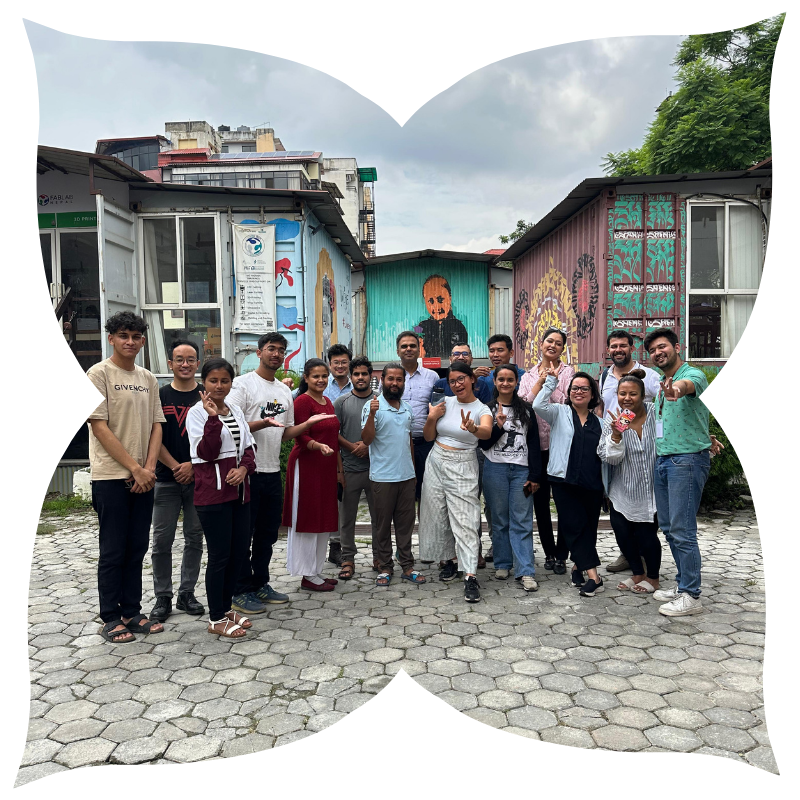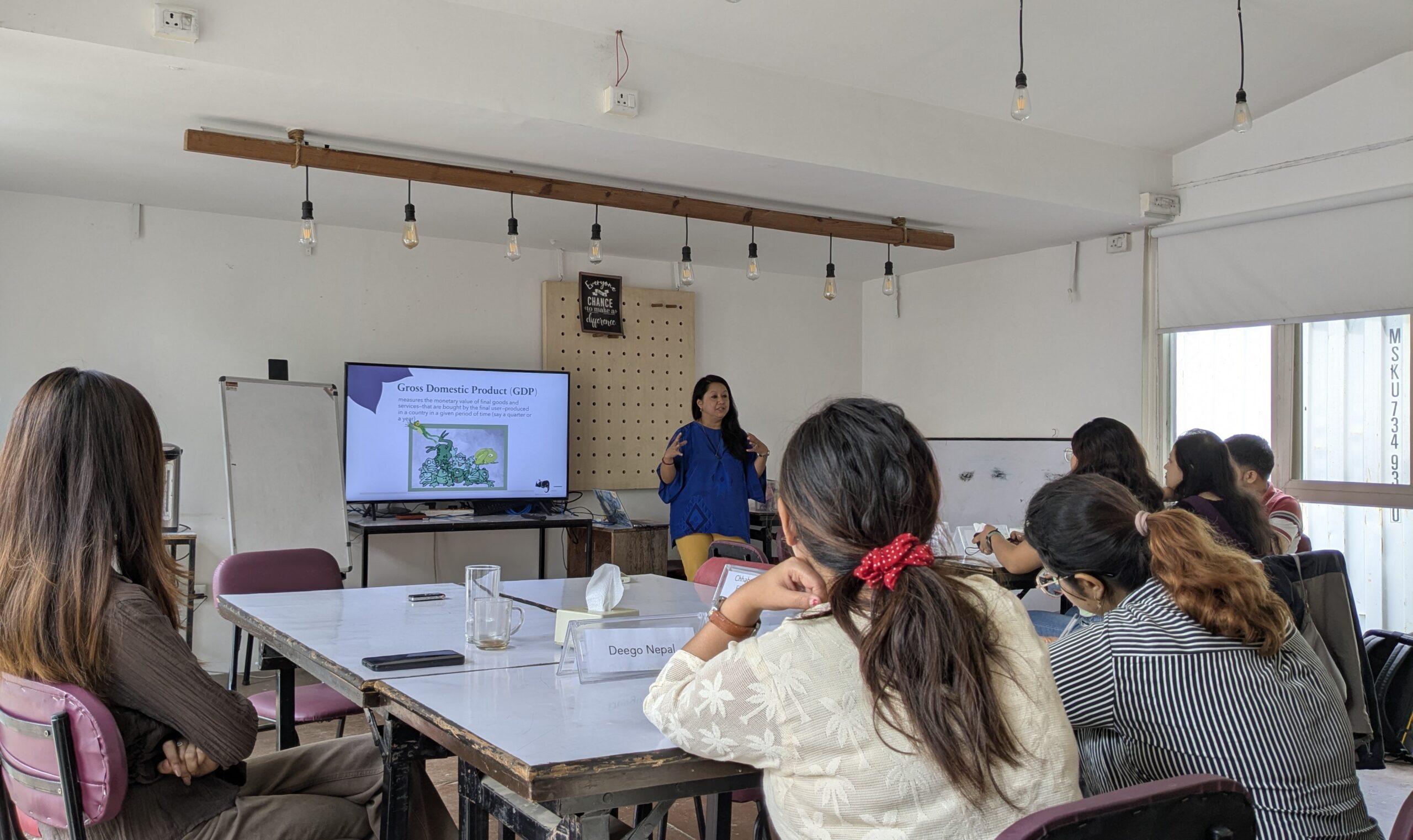Circularity for a sustainable
Nepal




Empowering communities, businesses, and ecosystems through circular solutions.










What is Roots of Circularity Nepal?








Launched in August 2023, the Roots of Circularity Nepal programme is a four-year initiative running through July 2027, with a bold mission:
To drive a fundamental shift in Nepali policies, engage civil societies, and nurture the entrepreneurial landscape to embrace the concept of Circular Economy principles.
The programme is being implemented across Bagmati and Lumbini Provinces, working with local stakeholders to catalyse change across education, enterprise, civil society, and government.
Our impact so far
Enterprises incubated in Bagmati & Lumbini provinces
Green jobs supported
Green jobs held by women
People engaged at Nepal’s first Circularity Conclave
Reached through social media campaigns
Organisations united under the Green Alliance Nepal
Our pillars
Education
Circular thinking starts early. By embedding circular economy into national school and university curricula and textbooks, we are aiming to equip more than 1.6 million students across over 11,500 schools and universities with the mindset and skills to rethink waste, resources, and consumption.
Entrepreneurship
Through our incubation programme in Bagmati and Lumbini provinces, we’ve already supported 30 businesses, of the 60 businesses we aim to reach, that are putting circular practices into action, from turning scrap iron into new construction tools to reducing food waste with solar-powered dryers. Together, these businesses are already creating over 400 green jobs, most of them for women.
Policy & convening
We’ve launched the Green Alliance Nepal, a platform that unites civil society, entrepreneurs, and policymakers to advance circular economy and green growth at local, provincial, and federal levels, creating the foundations for a thriving ecosystem. The first Circularity Conclave in 2024 gathered more than 900 participants, laying the groundwork for future policy dialogue and collective action.
Awareness & media
Circularity becomes real when it enters everyday conversations. Our campaigns have already reached more than 250,000 people online, and a network of 71 trained journalists is amplifying stories of change across Nepal, helping to shift public attitudes and inspire action.




